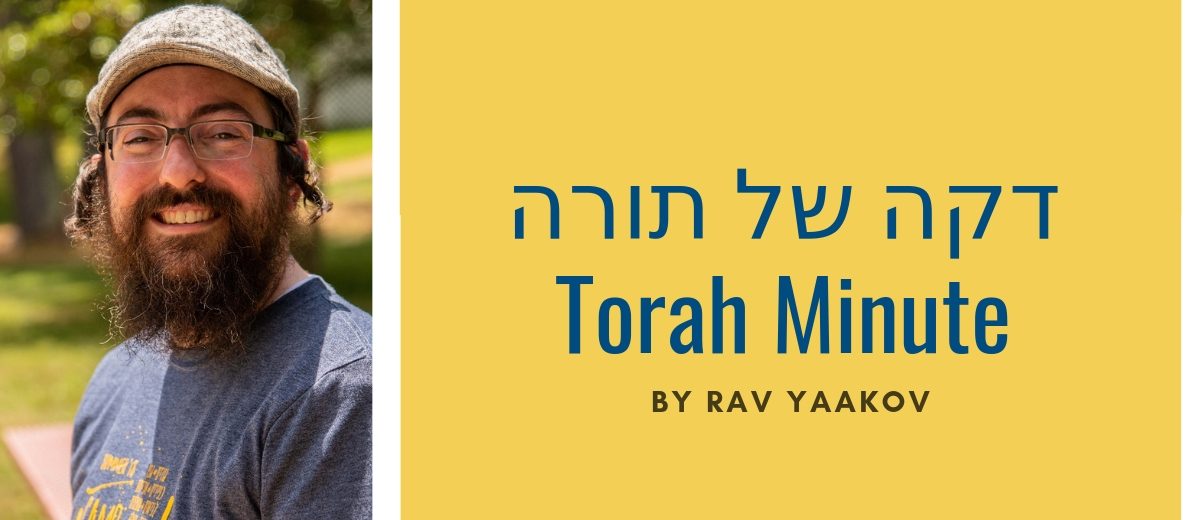Things Are Not Always What They Seem
This week’s parsha begins with Yaakov on the run from his brother Esav. Last week’s parsha ended with Rivkah, their mother, believing that desperate times called for desperate measures, encouraging Yaakov to deceive their father into giving him the birthright blessing meant for Esav, deeming Yaakov the next patriarch of the Jewish people. Yaakov camps for the night on a mountain and has a famous dream where he sees angels ascending and descending a ladder to Heaven. When he wakes up the next morning, Yaakov exclaims, “Behold, God was in this place and I, I did not know.”
The dream caused him to realize he was in the presence of holiness, causing him to see everything in an entirely different way (this mountain happens to be where Yitzchak was almost sacrificed by his father Avraham; today it is known as the Temple Mount or Har Habayit).
The other side of that same “seeing things in a new way” coin is that “things are not always what they seem.” Indeed, this would be a recurring theme in Yaakov’s life. Consider these events spanning from last week’s parsha through the next few parshiot depicting Yaakov’s life:
- Yaakov receives his Jewish birthright while pretending to be someone else
- Yaakov sleeps on the mountain, a holy place in disguise
- Yaakov’s father-in-law Lavan tricks him into marrying Leah, disguised as Rachel
- On their way back to Canaan Yaakov swears to an angry Lavan that they did not steal his idols, not knowing that Rachel had secretly taken them from Lavan to break her father of the idols habit
- Yaakov wrestles with a mysterious man who turns out to be an angel in disguise, who gives Yaakov a new name, Yisrael
- While Yaakov was convinced Esav would hate him and try to kill him, at their reunion Esav ends up kissing and embracing Yaakov with love
The culmination of these events, and even more among them, was when nine of Yaakov’s sons turned against their youngest brother at the time, Yosef. They deceived their father, not just by lying to him that Yosef had been killed in an accident while they had truly sold him to a party of Ishmaelite merchants, but by literally disguising the coat of many colors Yaakov had given to Yosef as that of a murder victim, covered in (goat’s) blood. Selling Yosef to the Ishmaelites sets in motion a chain of events of hundreds of years that leads to the formulation of the Jewish nation.
So just as Yaakov began to achieve his destiny through deception and disguise, toward his father Yitzchak, Yaakov’s own sons lied to their father through the deception of the bloody coat, as Yosef ended up in Egypt and the rest of Jewish history began.
What are we meant to learn from this, that things not being what they seem, causing one to have to see things through new eyes, is a central recurring theme in the lives of our patriarchs and matriarchs, a motif their stories repeat over and over? Are we meant to think that the Jewish people was founded on deception?
No – Judaism was founded on the belief that things are not always what they seem, and the importance of seeing things in a different light. Our world seems physical, yet God is everywhere in it. We are a tiny little nation (with a tiny little country) yet somehow command the attention of the world and contribute so much to world events. We are meant to constantly integrate the physical and spiritual worlds, through elevating worldly things with holiness (making a bracha over food, turning one day a week into a day of godly rest, etc. etc). Indeed, our holiest day of the year is called Yom K’purim, literally “a day that is like Purim,” which we all know is celebrated through costumes and confusing Mordechai with Haman (as things turned upside down when we were supposed to be destroyed but were victorious), with an energy and observances that are the polar opposites of Yom Kippur.
Judaism was founded in this week’s parsha on the belief that we are meant to reveal Godliness in this world, a place where God always is — even when we didn’t know it.
Questions for the Shabbat Table:
- Can you think of an example from the Torah (other than those mentioned here) of things not being what they seemed? What do you think that event could have meant to the history of the Jewish people?
- Can you think of an example in your own life where things were not what they seem, and it was necessary for you to look at things in a completely new way?




